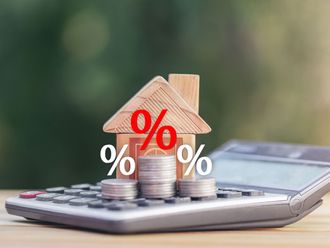Stability is showing up on the two counts that matter most in Dubai’s real estate — on property values and in the number of monthly transactions taking place of ready properties. And even more important, this is not limited to a handful of price-sensitive residential clusters.
The consistency will bring cheer — ample doses of it — to developers and individual sellers, and further strengthens the belief the downturn that started in mid-2014 is over. Buyers will still continue to hold the cards in the deals — there are enough buying options available for them to pick and choose and keep price movements confined to a narrow range.
It’s all showing up in the data.
Only three apartment-based locations during the January-May period missed out on the month-on-month gains — Motor City (down 50 per cent over April), Sports City (by 21 per cent) and Remraam (a cluster in Dubailand that was down 62 per cent), according to data from Global Capital Partners, a consultancy. (Among villa-centric communities, Jumeirah Park and Jumeirah Islands saw deal-making lower in May by 60 per cent and 50 per cent, respectively.)
But elsewhere, things were distinctly upbeat, with the emphasis on “price stability”. International City and Dubai Marina recorded the most deals in May, at 177 and 141 respectively. Pricey Palm Jumeirah pushed past the 50-deals a month mark for the first time this year, to total 56 units. It was in the 40 plus range for the first three months before dipping to 34 units in April.
So, is it a case of investors showing an extra keenness to close deals before Ramadan and the summer break? Or could it signal the beginning of sustainable activity for the rest of the year?
“There will likely be a decline during Ramadan … however, we are seeing enhanced buying interest from end users suggesting this is not a seasonal buying effect,” said Sameer Lakhani, Managing Director of GCP. “Transactions are rising in all areas, implying different price points are compelling buying.”
That end users are getting on-board is borne out by other numbers. According to Chesterton Mena’s latest market update, mortgage transactions shot up during Q1-16 and “increasing total transactions to a total of Dh27 billion. Indeed, banks report mortgage business booked well into the third quarter.”
The fairly decent transaction levels have taken many by surprise. “The second quarter of 2016 was expected to be quiet in terms of activity,” the Chesterton report adds. “However, there has been a marked increase.”
But unlike other market watchers, Chesterton’s tempers the enthusiasm over selling prices, stating they “may see further pressures”.
For the moment, the industry will only be too glad to see the first quarter of 2016 levels getting mirrored in upcoming quarters, or even close to it. There is nothing more injurious to market health than indifferent sales and unsold stock piling up.
For now, that’s not happening, and sales are picking up month over month. And sellers were quick to experiment with pricing and payment offers to get enough buyers interested.
“There were bargains for properties in locations where the price decline had been the greatest … predominantly in high-income communities,” said Lakhani. “Where there was end-user buying throughout the city, it was brought about by an admixture of factors, key being that price stability was being seen.”
Off-plan buying and selling too is on an even keel
The first five months of the year saw off-plan launches of just over 2,500 units across a multitude of locations. These included those at super-prime destinations such as MBR (Mohammad Bin Rashid) City and Dubai Creek Harbour. And a fortnight ago, there was even the announcement of the first “water homes” in the city (at the Marasi Business Bay by Dubai Properties) and which could go on sale shortly.
According to market feedback, off-plan-related sales would be running at 40-50 per cent. In a market still in the grips of a slowdown, those levels are being seen as “good enough”. “New projects launched by Damac, Emaar (were) received well by investors,” said the Chesterton’s report.











